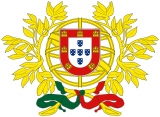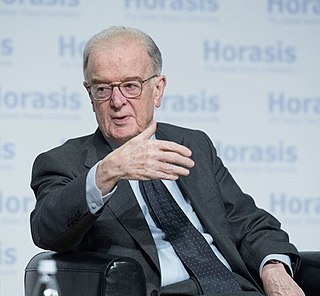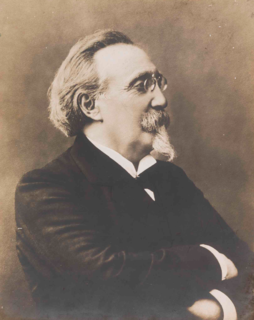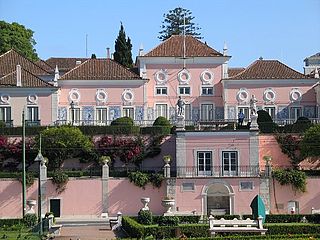
Bernardino Luís Machado Guimarães, GCTE, GCL, was a Portuguese political figure, the third and eighth President of Portugal.

Sidónio Bernardino Cardoso da Silva PaisCavC OA CavA was a Portuguese politician, military officer, and diplomat, who served as the fourth President of the First Portuguese Republic in 1918. One of the most divisive figures in modern Portuguese history, he was referred to by the writer Fernando Pessoa as the "President-King", a description that stuck in later years and symbolizes his regime.

António José de Almeida, GCTE, GCA, GCC, GCSE, son of José António de Almeida and his wife Maria Rita das Neves, was a Portuguese political figure. He served as the sixth President of Portugal from 1919 until 1923.

The Portuguese Constituent Assembly election, 1975 was carried out in Portugal on 25 April 1975, exactly one year after the Carnation Revolution. It was the first free election held in Portugal since 1925, and only the seventh free election in all of Portuguese history. Turnout was a record 91.66 percent, which remains the highest ever in any Portuguese democratic elections.

António Óscar Fragoso Carmona, BTO, ComC, GCA, ComSE, was the 96th Prime Minister of Portugal and 11th President of Portugal (1926–1951), having been Minister of War in 1923.

This is a historical timeline of Portugal.

The First Portuguese Republic spans a complex 16-year period in the history of Portugal, between the end of the period of constitutional monarchy marked by the 5 October 1910 revolution and the 28 May 1926 coup d'état. The latter movement instituted a military dictatorship known as Ditadura Nacional that would be followed by the corporatist Estado Novo regime of António de Oliveira Salazar.

José Mendes Cabeçadas Júnior, OTE, ComA, commonly known as Mendes Cabeçadas, was a Portuguese Navy officer, Freemason and republican, having a major role in the preparation of the revolutionary movements that created and ended the Portuguese First Republic: the 5 October revolution in 1910 and the 28 May coup d'état of 1926. In the outcome he became the 69th Minister of Finance for one day only on 30 May 1926, then becoming interim Minister for Foreign Affairs for two days between 30 May and 1 June, after which he again became the 70th Minister for Finance on the same day. He served as the ninth President of the Republic and Prime Minister for a brief period of time.

Manuel de Oliveira Gomes da Costa, GOTE, GCA, GOA, commonly known as Manuel Gomes da Costa, or just Gomes da Costa, was a Portuguese army officer and politician, the tenth President of the Portuguese Republic and the second of the Ditadura Nacional.
Francisco da Costa Gomes, ComTE, GOA was a Portuguese military officer and politician, the 15th President of the Portuguese Republic.

Afonso Augusto da Costa, GCTE, GCL was a Portuguese lawyer, professor and republican politician.

The Ditadura Nacional was the name given to the regime that governed Portugal from 1928, after the re-election of General Óscar Carmona to the post of President, until 1933.
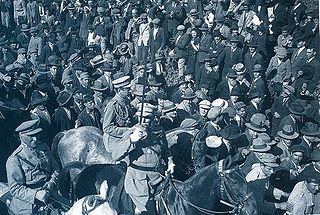
The 28 May 1926 coup d'état, sometimes called 28 May Revolution or, during the period of the authoritarian Estado Novo, the National Revolution, was a military coup of a nationalist origin, that put an end to the unstable Portuguese First Republic and initiated 48 years of authoritarian rule in Portugal. The regime that immediately resulted from the coup, the Ditadura Nacional, would be later refashioned into the Estado Novo, which in turn would last until the Carnation Revolution in 1974.

João Tamagnini de Sousa Barbosa, commonly known as João Tamagnini Barbosa, or Tamagnini Barbosa, was a Portuguese military officer and politician of the Portuguese First Republic (1910–1926). He served as Minister of Interior, Colonies and Finances during the period known as "New Republic", after the coup d'état of the National Republican Party and the semi-dictatorial government of President/Prime Minister Sidónio Pais, followed by a brief participation in the provisional government of João do Canto e Castro after the assassination of Sidónio Pais.

The National Salvation Junta(Junta de Salvação Nacional,Portuguese pronunciation: [ˈʒũtɐ dɨ saɫvɐˈsɐ̃w̃ nɐsiuˈnaɫ]) was a group of military officers designated to maintain the government of Portugal in April 1974, after the Carnation Revolution had overthrown the Estado Novo dictatorial regime. This junta functioned following a communiqué of its president, António de Spínola, at 1:30 a.m. on 26 April 1974. The National Salvation Junta was the de jure governing body of Portugal following the Carnation Revolution.
The Nationalist Republican Party was a right-wing republican party during the First Portuguese Republic. It was founded as a merger of the Republican Liberal Party, the Reconstitution Party and some elements of the old National Republican Party of Sidónio Pais. Initially with moderate conservative orientation, it drifted increasingly to the right, making concessions to Catholic constituencies towards the end of the First Republic.
João José Sinel de Cordes was a Portuguese general and politician.
Events in the year 1910 in Portugal.
Events in the year 1926 in Portugal.


